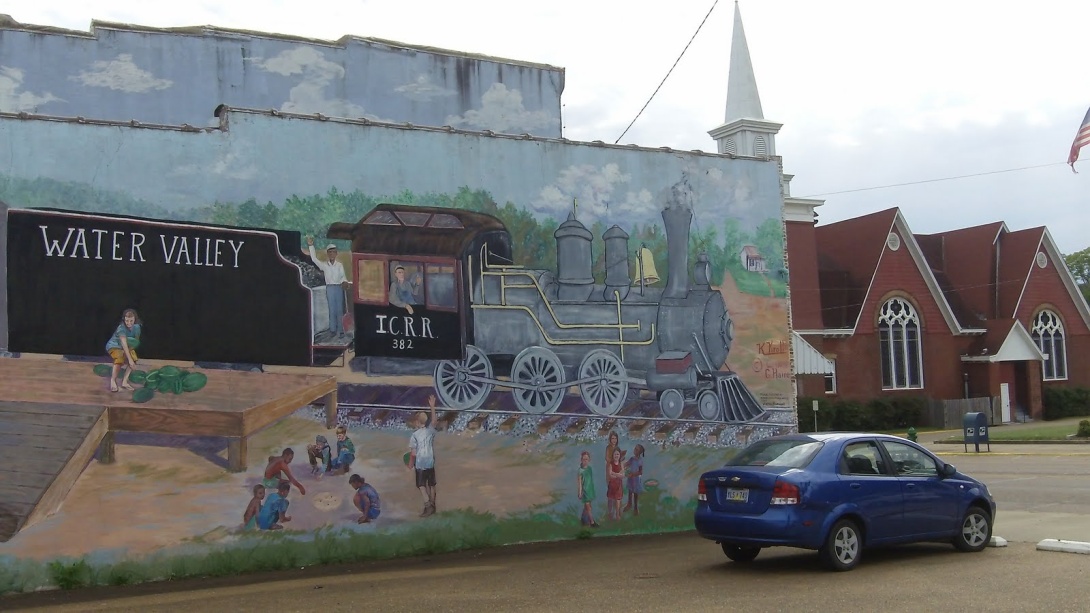By Joe Atkins, Labor SouthThe odds against the striking workers at Rice-Stix Dry Goods Co. seemed overwhelming.Aligned against them were the company, the town's business leaders, its banks, the local newspaper, the courts, even the governor of Mississippi who had called out the National Guard. Only one store in Water Valley would even do business with the strikers.It was October 1952, and Mississippi "was not a great place to be on strike," Rice-Stix worker Nellie McCulley told ACTWU Voices, the publication of the Amalgamated Clothing and Textile Workers Union.But she and the 650 other workers at Rice-Stix's plants in Water Valley and Farmington, Mo., had had enough of sub-minimal wages and disrespect. "The pay was low," McCulley said. "But it was the unfairness the company carried out that really made people mad. They had a good time playing favorites with their kin or friends."Then came an unlikely ally: Yalobusha County Sheriff Floyd Farmer. When Gov. Hugh White's National Guardsmen unsheathed their bayonets and began arresting workers willy-nilly, Farmer told his deputy to release them. The strikers were hard-working neighbors, not criminals."As soon as they locked them up, my daddy was letting them out the back door," recalls Water Valley native and veteran labor organizer Danny Forsyth, whose father was Sheriff Farmer's deputy. "The sheriff almost got impeached. They had an impeachment hearing … at the old gymnasium. [People] filled that gymnasium full. There like to have been a riot. They were not able to impeach him. It wouldn't have been legal anyway."After six weeks, the workers, singing the old union song and later civil rights anthem "We Shall Overcome" on the picket line, won their strike.The story of Sheriff Farmer and the Rice-Stix workers is one of many labor union tales in this former railroad town of roughly 4,000 in north Mississippi.Another chapter in that history was written this August with the 80-to-28 vote by workers at Water Valley Poultry to join the United Food & Commercial Workers Union. The former Mott's Conagra-Blue Coach Foods plant had been union-represented before it shut down in 2003. "Hopefully we can go ahead and try to get a contract with the company," UFCW organizer Rose Turner said. "That's what we're looking forward to."Efforts to get comment from company officials were unsuccessful, but Turner said she expects a struggle ahead over a contract. "I know they are going to fight us."Water Valley's history with labor unions goes back to legendary 19th-century railroad engineer Casey Jones, who once lived in Water Valley and who held dual membership in the Brotherhood of Locomotive Engineers and Brotherhood of Locomotive Firemen. Jones, subject of song and legend after his death in a train accident in Vaughn, Miss., in 1900, was even master of his brotherhood's Water Valley Lodge."They had a good reason back then to have a union," said 84-year-old Jack Gurner Sr., who oversees the Casey Jones Museum in Water Valley. "The railroad company was quick to fire a man if he made a mistake, and the union would make them hire him back."The other side of Water Valley's labor tradition, however, is entrenched opposition to unions, even from folks like Jack Gurner Sr. "As far as I'm concerned, all the union wants is dues. If an individual has a problem, it is his problem."The labor tradition is woven into Water Valley's culture and history in complex ways. Blue-collar workers at Rice-Stix, Big Yank clothing, Mott's and now Water Valley Poultry have voted again and again to join a union. "They see the difference … in working in a union plant and in a non-union plant," Rose Turner said.When Water Valley was struck by a devastating tornado in April 1984, ACTWU donated $10,000 to a disaster relief fund and collected contributions from union locals around the country. The Red Cross' 12-county relief effort was headquartered in ACTWU's union hall in Water Valley.Yet something Nellie McCulley said decades ago still rings true today. "Unions in Mississippi are still having a hard time. I've learned that everyone has to work just as hard now to get the union organized as the way they did before."
(Photo by Joe Atkins via Labor South.)
Tags
Joe Atkins is a professor of journalism at the University of Mississippi and author of "Covering for the Bosses: Labor and the Southern Press." A veteran journalist, Atkins previously worked as the congressional correspondent with Gannett New Service's Washington bureau and with newspapers in North Carolina and Mississippi.
Email Joe
Knowledge matters.
From exposing abuses of power and holding powerful interests accountable to elevating the voices of everyday people working for change, Facing South has become a go-to source for investigative reporting and in-depth analysis of Southern issues and trends.
Support Facing South with a tax-deductible donation.
Donate

